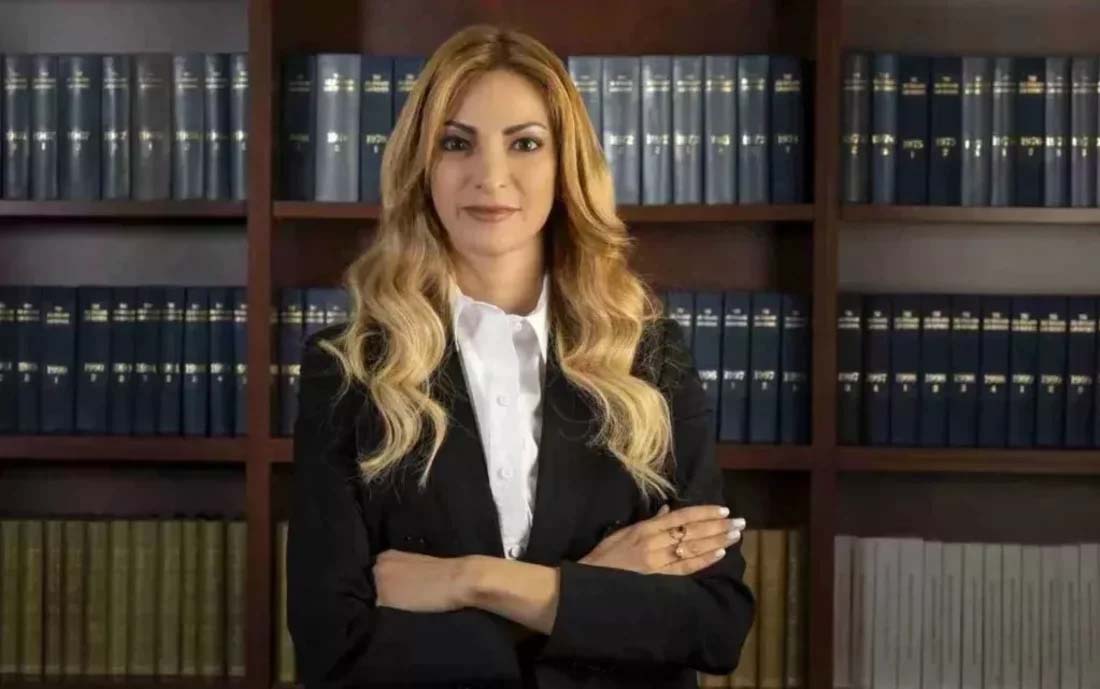Former district court judge Doria Varoshiotou said through her attorney on Thursday that she will fight the recent decision dismissing her at the end of her two-year probationary period.
Varoshiotou had presided over the highly publicised Thanasis Nicolaou case – the third inquiry into the circumstances of his death – by ruling in May 2024 that the young man’s death had been caused by strangulation “due to criminal activity”. In doing so, she overturned the verdict of ‘suicide’ that had stood for 19 years.
In late June this year, the judicial council – which reviews the performance of judges – decided she was unfit for the job, citing in its opinion errors made by Varoshiotou during her two-year probation period.
It therefore ruled that her position should not be rendered permanent and terminated her services. Had she stayed on, she would have become a tenured judge at the Limassol district court.
In particular, the judicial council took exception with her handling of the Nicolaou case, where Varoshiotou had barred a forensic pathologist from testifying.
Earlier this year, the Supreme Court, to which the former state pathologist Panikos Stavrianos – he had given suicide as the cause of death – appealed because Varoshiotou had not allowed him to testify, found that Varoshiotou committed legal errors in the way she conducted the case. It did not, however, overturn her decision as a whole.
On Thursday, Varoshiotou’s attorney Achilleas Demetriades published in full the decision of the judicial council, dated June 30.
In a statement issued by the law firm, Demetriades said he had asked the judicial council to publish the decision, but the council refused in a response on July 2.
In the interests of “transparency and the public interest”, Demetriades said, he was now taking it upon himself to make the decision public.
The attorney added: “Concerning this matter, we have received instructions to file an appeal, which we are preparing.
“Given the above, we shall not be making any further public statements.”
In its lengthy decision, the judicial council points out that Varoshiotou had also mishandled two other inquests, other than the Nicolaou case.
But it does focus on her handling of the case of the deceased conscript, Nicolaou.
It argues that Varoshiotou has exhibited “deficient legal skills and perception of the law” in making a determination to prohibit the state pathologist from taking the stand.
But the judicial council goes further, pointing to “matters of behaviour and reactions by Ms Varoshiotou”.
It references her reaction when a senior judge – who oversees the Limassol district – gave her some observations on her handling of the Nicolaou affair.
Varoshiotou had responded in writing, insinuating that the senior judge had attempted to get her to reverse her ruling.
Later, Varoshiotou addressed a letter to the Supreme Court regarding the latter’s own ruling that she had made an error in not allowing the state pathologist to testify.
In her last correspondence with the Supreme Court, dated June 23, 2025, Varoshiotou accused both the judicial council and the Supreme Court of being “negatively disposed” toward her because of her ruling in the Nicolaou case.
According to the judicial council, in doing so Varoshiotou was “imputing to the judicial council and the Supreme Court that they are acting with ulterior motives and vindictively”.
Given all this, it concluded, “we deem that Ms Varoshiotou does not merit having her appointment ratified to the position of tenured district court judge.
“As such, her service is terminated upon the expiry of the probationary period.”






Click here to change your cookie preferences